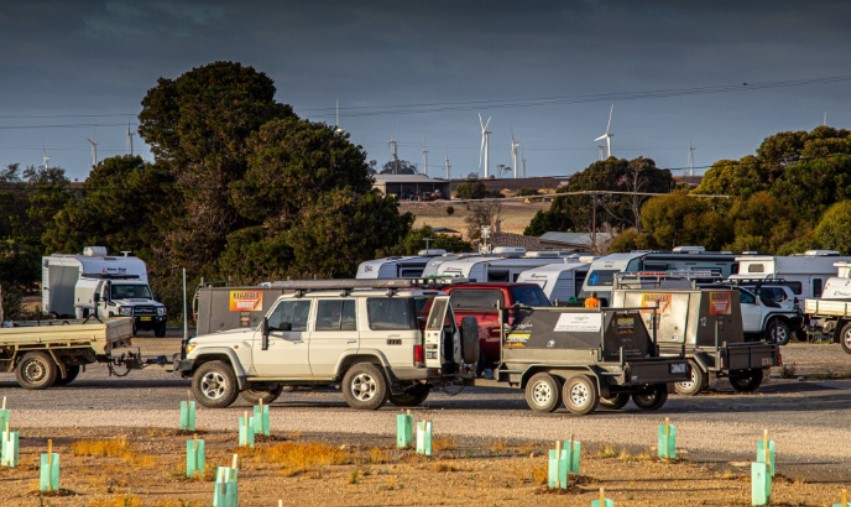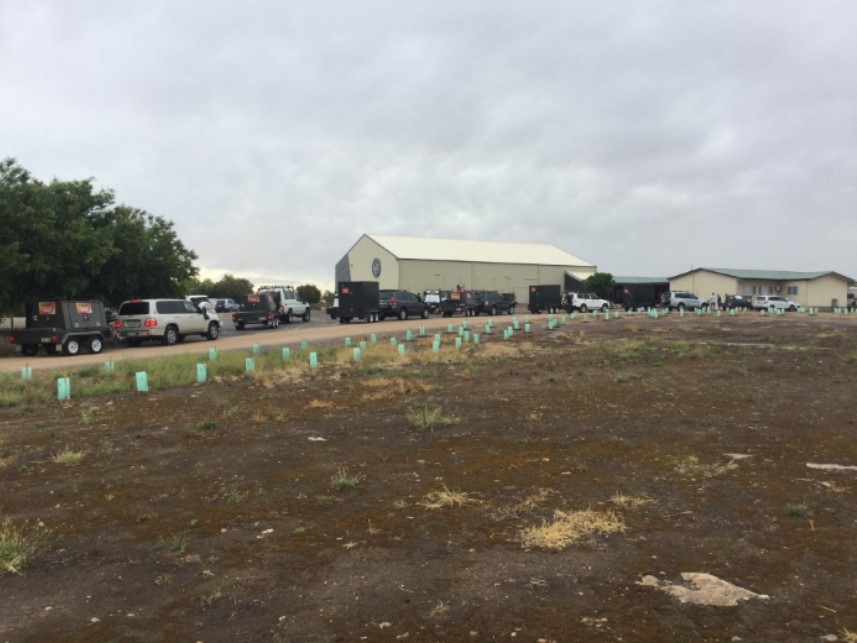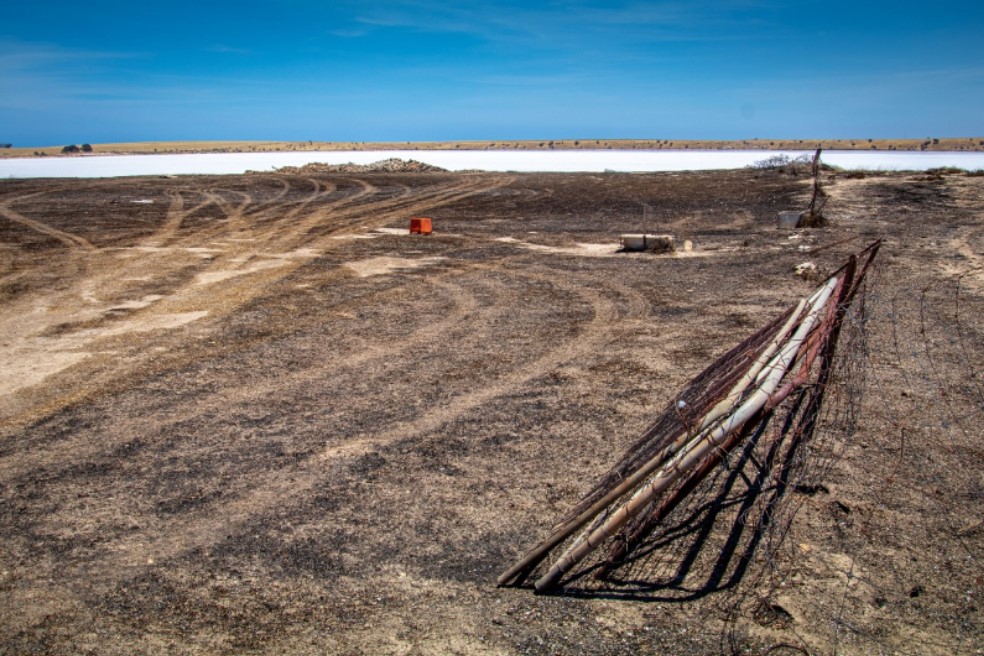On the 20th November 2019, Australia was ablaze with bushfires. One of these was the Yorketown/Edithburgh fire. Approximately 5,000 hectares were burnt by a fire that started on the outskirts of Yorketown and travelled south, before a wind change saw the fire turn east to Edithburgh. Prompt action by the many volunteers of the CFS and locals was the only thing that saved the town. The fire was literally on the town boundary. Some residents had their back fences burnt. The fire was to claim 18 houses and sheds as well as 300 head of sheep, 60 chicken, 5 deer and large areas of crop; much of it yet to be reaped.
After such devastating events, often the first to arrive to assist in recovery is the Blaze Aid organisation. Once a local shire or council contacts them, Blaze Aid will set up a camp (usually a showground) and call for volunteers. Their primary role is to assist with fencing boundaries to keep stock contained. Firstly, the old fences are cleared then new ones are erected, using a ratio of funding from the owner and donations from Blaze Aid. Sometime new fence lines are created to better suit current farming methods e.g. a large number of farms on the Yorke Peninsula now grow cereal crops rather than stock and, as such, they now only need large paddocks, so less fencing.
The Edithburgh fire saw the removal of kilometres of rock wall fencing. Much of it was in a bad state of repair and contained many stumps and large logs which were still smouldering after the main fire was extinguished. These rock walls were all hand stacked over the generations, as removing the rocks meant better field yields and stacking them, created fences. These rock walls were a major hazard in firefighters efforts, as they presented barriers that had to be constantly skirted around. Over the course of the clearing efforts, over 160,000 tonnes of rock were dozed and taken by the local quarry to be used as road base. There are still many, many kilometres of rock wall standing which can be seen all over the area.
Wal and I travelled to Edithburgh in mid-January to join the Blaze Aid camp. This camp was the first 5 star camp we have attended as we were based in the Light church school buildings. The school is no longer active but the church allowed us to use their facilities.
All Blaze Aid camps have certain requirements. They must have access to showers and toilets as well as a kitchen and dining area, hence usually clubrooms or show grounds. Power for caravans etc is provided. Blaze Aid tries to buy fencing materials from local suppliers. The usual practice is for community groups to provide food and provisions but often there are volunteers who choose not to work in the field and they prepare meals and keep the facilities clean. There is usually a cooked breakfast provided, items for a packed lunch and a hot meal at the days end. All tools and equipment are provided and all members have hi-vis vests and access to P.P.E. You only do as much as you are able and are encouraged to take a day off each week. Each camp is different, just as each fence is different.

We were fortunate this time, that all the post holes had been drilled by machine, making the replacement a lot quicker, and the terrain was flat. However, the nature of the soil (limestone) meant that some of the holes had to be scooped out by hand as the debris from the auger had fallen back into the hole and thus the “grave digger” gang was formed. The only way to get the debris out was to lay spread eagled on the ground and scoop it out with a jam tin or similar. One very quickly learnt to face into the wind and tip the tin out to the side. Sometimes we came across a small lizard or large beetle that had fallen in and had to be evacuated. There was even a small snake in one hole.

We were only able to stay for 2 weeks but , over the life of the camp, more than 400km of fence lines on 21 properties were cleared and 300km of new fence was erected. The Blaze Aid volunteers gave over 1500 days of work to the area and spent much needed funds in the local towns. Even though the work can be strenuous and dirty, we find the camaraderie and sense of achievement make for a valuable life experience.


Kerry Muhleder
Stats supplied by the Butlers